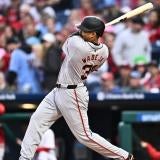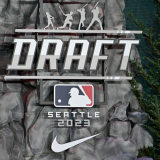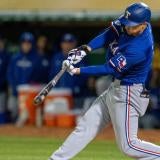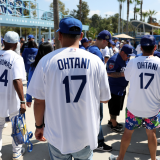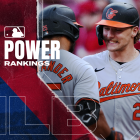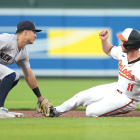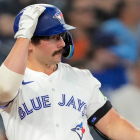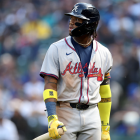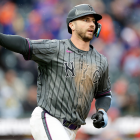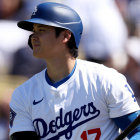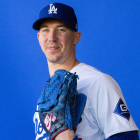 |
| Selig and Weiner continue to make strides in cleaning up baseball. (Getty Images) |
Major League Baseball has announced unprecedented measures to stop players from using HGH (human growth hormone). The announcement came from a Major League Baseball press release Thursday afternoon.
Beginning this season, MLB will conduct random, unannounced, in-season blood testing for HGH. All players will be tested at least once.
Also, effective at the beginning of the 2013 season, both the MLB and MLB Players Association have agreed to use a "longitudinal profile program." From the press release:
In addition, beginning in the 2013 season, the parties have authorized the World Anti-Doping Agency (WADA)-accredited Montreal Laboratory to establish a longitudinal profile program, in which a Player's baseline Testosterone/Epitestosterone (T/E) ratio and other data will be maintained by the laboratory, with strict protections for confidentiality, in order to enhance its ability to detect the use of Testosterone and other prohibited substances. The laboratory will automatically conduct Carbon Isotope Ratio Mass Spectrometry (IRMS) analysis on all specimens that vary materially from a Player's baseline values. The laboratory also will increase the number of random IRMS analysis it conducts on specimens. The longitudinal program being implemented by the parties will be one of the most significant programs of its kind in the world.
Punishments will be the same as the punishments for steroids, which is a 50-game suspension for the first positive test, a 100-game suspension for the second positive test and a third positive test will result in a lifetime ban from the game.
| More on MLB and PEDs |
| Column |
 |
| Related links |
| Video |
“This agreement addresses critical drug issues and symbolizes Major League Baseball’s continued vigilance against synthetic human growth hormone, Testosterone and other performance-enhancing substances," said commissioner Bud Selig in a statement. "I am proud that our system allows us to adapt to the many evolving issues associated with the science and technology of drug testing. We will continue to do everything we can to maintain a leadership stature in anti-doping efforts in the years ahead.”
In July of 2010, minor-leaguers began facing HGH testing and then last offseason -- with the new collective bargaining agreement -- MLB started HGH testing during the offseason, in spring training and with "reasonable cause" cases.
Now everyone is on notice all the time.
If this sounds like an obvious step, it's still a first step. And, Major League Baseball will become the first major U.S. sport with such testing.
Also of note here is that for years the MLBPA was averse to any sort of testing whatsoever, but in the past two years -- under the leadership of Michael Weiner, who took over as executive director in December of 2009 -- significant strides have been made in the effort to clean up the game.
“The players are determined to do all they can to continually improve the sport’s Joint Drug Agreement," Weiner said in a statement. "Players want a program that is tough, scientifically accurate, backed by the latest proven scientific methods, and fair; I believe these changes firmly support the players’ desires while protecting their legal rights.”
A testing plan was implemented on the watch of Donald Fehr, but under Weiner things have been taken to a new level.
Baseball is now far ahead of the other professional sports in terms of monitoring HGH use.
“Although the Montreal Laboratory has made extensive use of IRMS in the past, the addition of random blood testing and a longitudinal profiling program makes baseball’s program second to none in detecting and deterring the use of synthetic hGH and Testosterone," said Christine Ayotte, director of the lab, in a statement. "A drug testing program that follows over a thousand steroid profiles and tests over a thousand blood specimens each year compares favorably with any WADA program.”
For more baseball news, rumors and analysis, follow @EyeOnBaseball on Twitter, subscribe to the RSS feed and "like" us on Facebook.








